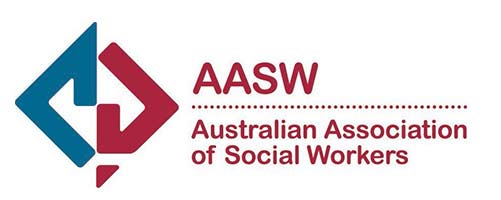We are women of the modern world and we never were or expected to be more independent than now, but when does our independence become the very thing that is holding us back? How can we get the right balance? And you might be surprised to learn what may be under our ultra independence.=
Do you hear yourself using these phrases below?
“No one can do it better than I can.”
“I don’t need anyone’s help. I can do it on my own.”
“Being nice to people gives them a chance to hurt you.”
“I’m done letting people into my life.”
“I can’t trust anyone.”
Are these lines familiar? Have you tried saying this to yourself? Or do you know anyone who thinks the same?
Have you ever met someone that just made you say “Oh, wow! She has her life together!” Do you know a person who gives almost everyone an ice-cold treatment who never seems to let anyone in their world? Have we ever thought to ourselves, “No one can do it better than I can.” ? If you’ve said yes to these questions, then you might have seen the face of ultra independence, or hyper independence as others may call it.
Ultra independence is a trauma response. It may appear as the fear-based need to have everything sorted out and under control.
Ultra-independent people from another person’s point of view might be someone very impressive. Someone who gets shit dones. The life of the party. The envy of most people. The leaders of their pack.
This is not to put every independent person in a single vacuum, but you get the picture. A third person’s default idea of the ultra independent people are those who are , “LIVING THE LIFE.”
If you’re an ultra independent person, you dislike it when you reach out for help because you might be seen as weak or stupid. Or when things don’t go as you planned, you become anxious that people might find you incapable or not good enough. And you hate that. You absolutely hate to feel like you’re lacking.
You feel as if being vulnerable is being weak. And that’s probably because in the past, you did not get the best response when you showed your vulnerability. You may have had horrible experiences because you showed your vulnerable state.
But before we proceed further, let’s make this clear. Being independent is good. It’s a social skill we all should possess. However, it is an entirely different story when you strive to be extremely independent because you think you’ll only be hurt if you don’t. If being hyper independent causes you to build a wall between you and people, if it causes you distrust pretty much everybody around you, and if it causes you to shut out your feelings, then that’s entirely a different story.
That’s not being independent. That’s being fearful. And so you choose to bury or cover that fear with the facade of independence.
First, let me tell you that IT’S NOT YOUR FAULT. It’s not your fault you’ve been through hell and back. It’s not your fault people hurt you before. And because it’s not your fault, you should stop being hard on yourself.
Oh you’d probably say “I’m not being hard on myself, I’m being hard on others.”
My dear, you probably don’t know it,but you’re actually being hard on yourself. Big time.
There are various reasons that lead to a person choosing the path to ultra-independence.
One might have a history growing up always being alone, and always having to do things on your own. You might have been told often not to burden others and ended up taking it the wrong way. You might have interpreted it to mean that asking for help meant burdening others.
You might have been in a relationship that didn’t work out well for you; where you were loyal to your partner and gave your all but you were still left and cheated on. This led you to think that no matter how good you are, people will always leave you in the end.
Another reason could be, you might have caught your friends backstabbing you. You might have bad experiences of being bullied as a child. And it is from this experience that you thought it is best to stay away from people.
Or you might have developed trauma from losing a loved one. One might have lost a pet and swore to never get another pet to avoid getting badly hurt from its death. Or, one might have lost a friend or family which led them to totally close the doors to their heart to other people in the fear of not being able to carry on in the event they lose that loved one.
These are just some of the causes why a person chooses to pursue a path to ultra-independence. To avoid getting hurt – to not feel pain.
You may have a hard time recognizing, even acknowledging that you’re on this page- that you’re living in ultra-independence.
That’s because in this path, you’re getting things done. You’re achieving things and paying your own bills. Almost everyone around you admires your strength.
But is it really strength? To a certain extent, it can arguably be called strength. Just not the one to last.
Have you ever reached a point where you don’t want to speak with other people, where you just really want to have a break from your usual life and role? Have you ever felt like no one’s there for you and that if they knew your vulnerable state, they’d change the way they look at you?
If you have, then sweetie, you’ve experienced a burnout. And that’s because that ultra independent life you’re leading is a really exhausting one. It debilitates you. Physically. Mentally. Emotionally. And this awful effect lasts long and could scar you for life.
But here’s the thing: You can shift to another path and lead a healthier one. Independence and a healthy lifestyle are not mutually exclusive. You can be independent and look out for your well-being at the same time.
I know it’s not easy, but you can begin by slowly reaching out and when you need help. Whether that may be asking help to carry some stuff or to help you prepare for an event, just reach out. If you’re not confident they’ll do as well as you in the task, you can start by reaching out for help for smaller tasks. And once you do that, you also can start accepting their help. Learn to appreciate the willingness and the effort of other people to help you. The results may not always come out the way you want it to, but remember that they put in the work. And that’s something to be thankful for.
Another way is to make sure you’re being kind to yourself. When you’re saying yes to others, make sure you’re not saying no to yourself. This is sometimes, especially difficult for ultra independent people because of the fear that refusing an offer or a request can be seen as a sign of helplessness, of being powerless. And if you’re an ultra-independent person, you won’t like this because you’re used to being the one who runs the show. The reliable one. Being perceived as powerless makes you feel vulnerable and it brings back all the bad and sad experiences you’ve had before.
When someone asks you for help or offers you something, be sure that when you say yes, you’re truly saying yes. Because you will never get out of that unhealthy route if you keep lying and being hard on yourself.
It will be difficult. It will be frustrating. But I promise you, you will begin to heal, and the healthier independence will be worth it. You will thank yourself.
Just let go and then, begin.




